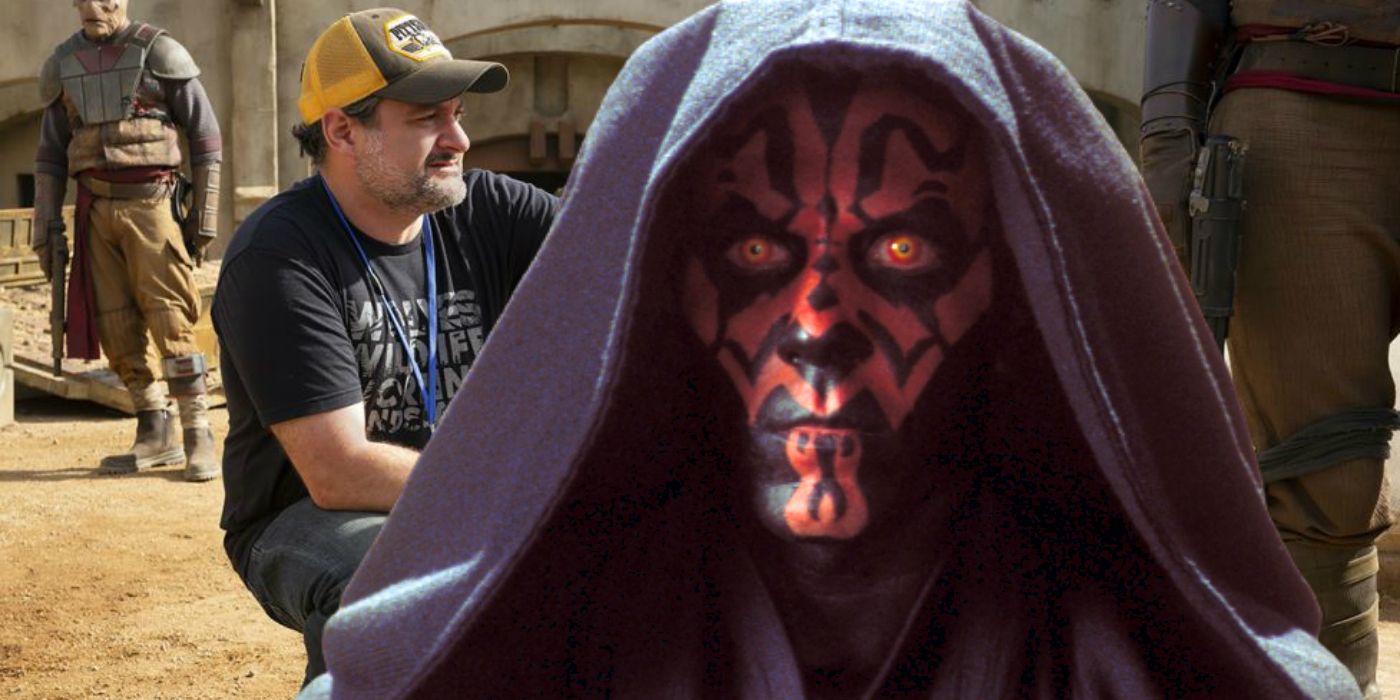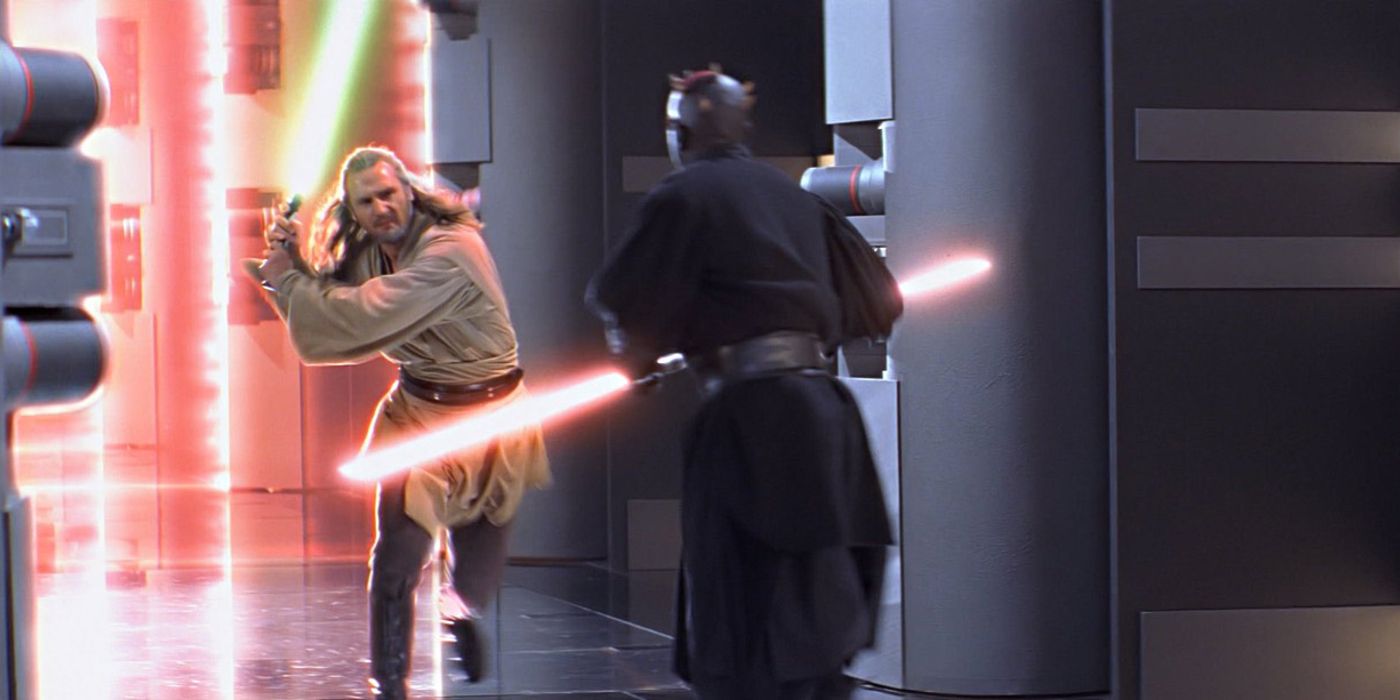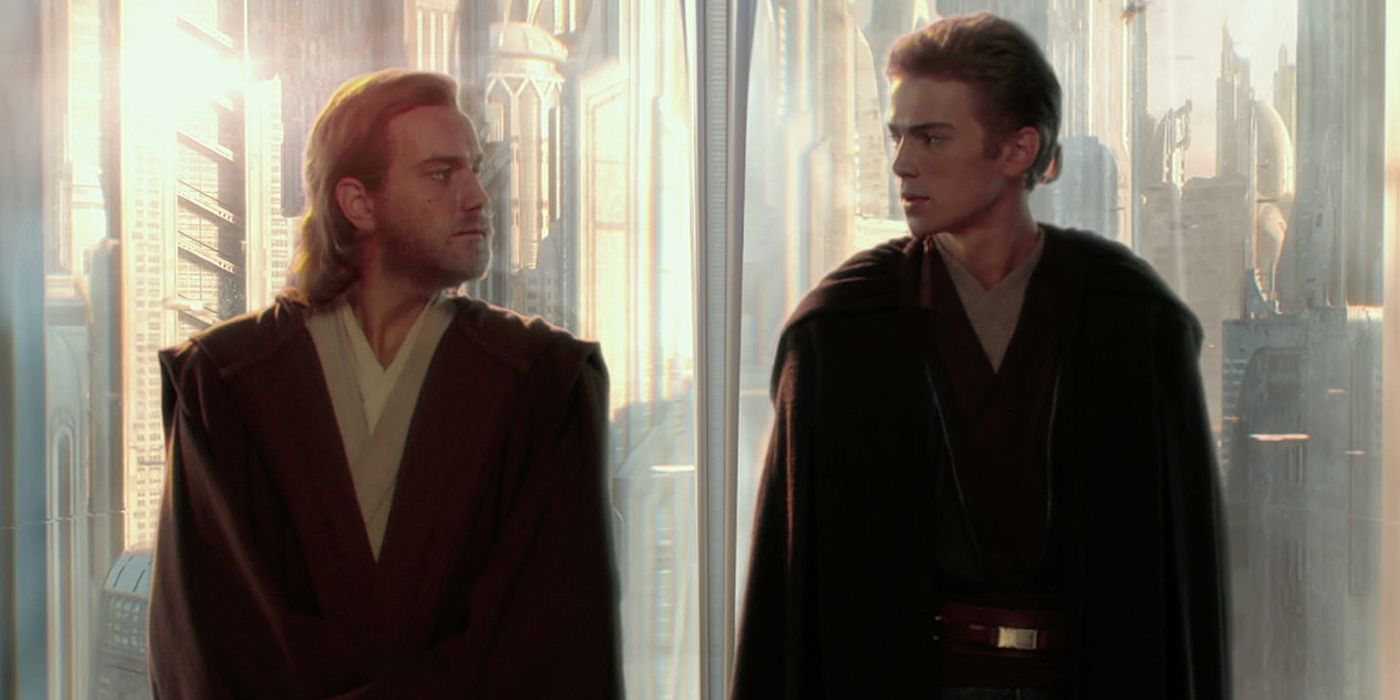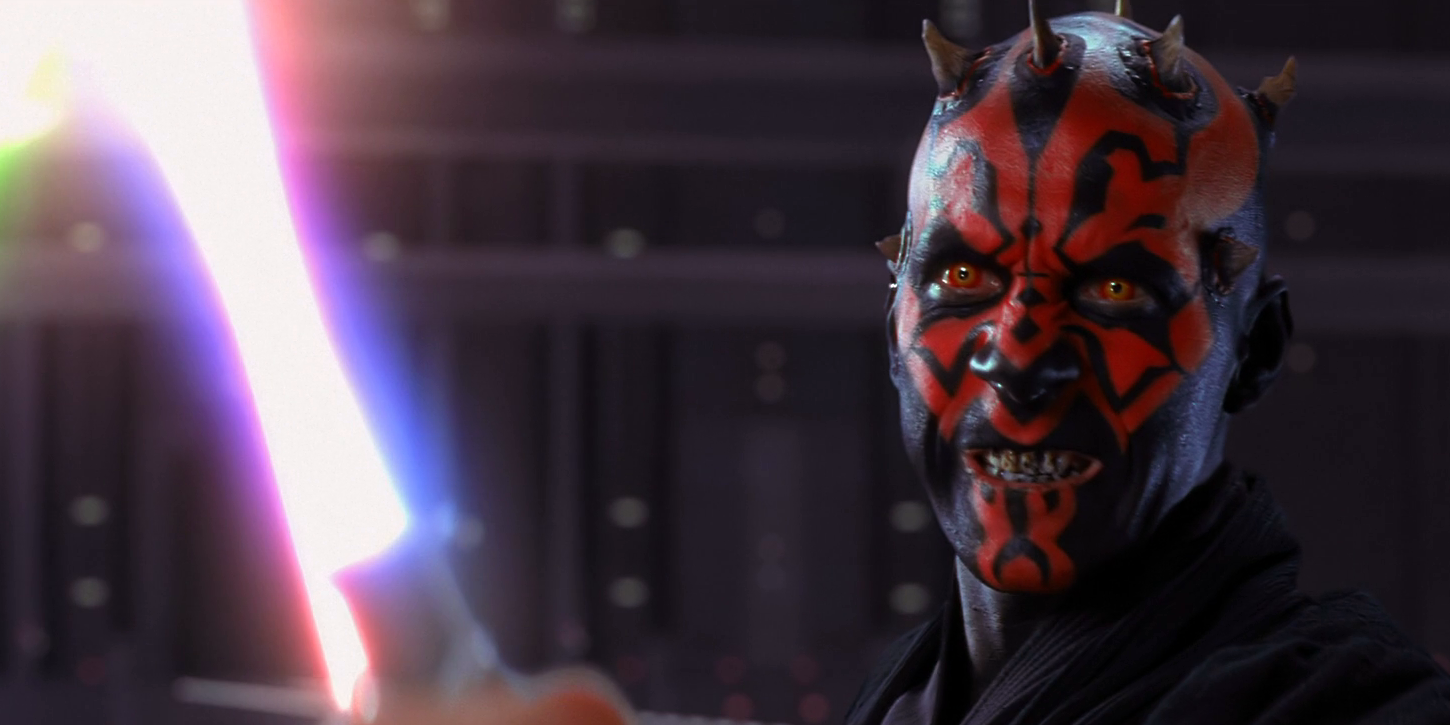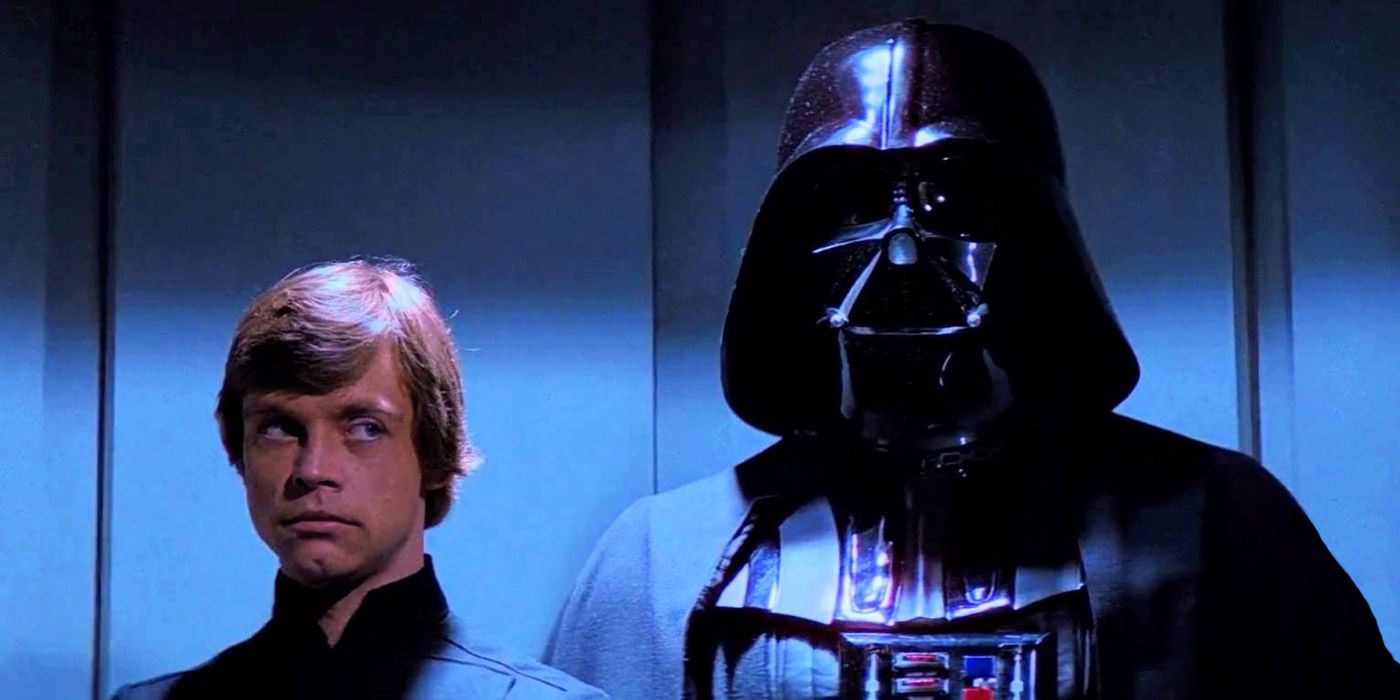The Disney+ documentary on The Mandalorian has given fresh insight into the Star Wars prequel trilogy. The Star Wars franchise is expanding at an unprecedented rate. Although the films have struggled of late, on the small screen the franchise has flourished, with the first live-action Star Wars TV series - The Mandalorian - becoming the most in-demand streaming show in the US in December 2019. That was followed up the final season of The Clone Wars, both popular and critically acclaimed.
Lucasfilm's Dave Filoni is key to this success. He worked closely with George Lucas himself, and as a result he has a deep understanding of Star Wars lore. It's no surprise, then, that Filoni seems to be the star of Disney+'s new documentary series, which goes behind-the-scenes on The Mandalorian. Frankly, the various directors - and even showrunner Jon Favreau - appear to be rather in awe of him.
The recently-released second episode of The Mandalorian's behind-the-scenes documentary sees Filoni talk at length about some of the themes of Star Wars. In doing so, he shines a fascinating light upon the entire prequel trilogy.
How The Phantom Menace Decided The Fate Of Anakin Skywalker
Filoni is an awe of all the technical achievements George Lucas made when creating the prequel trilogy; but as a storyteller, he's more interested in the narrative itself. To Filoni, the Star Wars saga is one of fathers and sons, and that theme kicks off in Star Wars: Episode I - The Phantom Menace. He stresses Qui-Gon Jinn came from a completely different philosophical background to the rest of the Jedi Order. "Qui-Gon hasn't given up on the fact that Jedi are actually supposed to care and love," he points out. Master Yoda had begun, falteringly, to understand this in Star Wars: Episode II - Attack of the Clones, but Qui-Gon was ahead of all the other prequel Jedi. And this different perspective in turn affected the way Qui-Gon related to the world, because he did not fear love. Qui-Gon looked upon the world with wonder, and he saw meaning and potential in a random and clumsy Gungan like Jar-Jar or a 10-year-old boy like Anakin. The rest of the Jedi - and even Obi-Wan Kenobi - saw this as just one of his eccentricities.
But this meant Qui-Gon Jinn would have been the one Jedi who could give Anakin what he most needed - a father figure. "He knew what it meant to take this kid away from his mother when he had an attachment," Filoni observes. Thus the Duel of the Fates - the battle between Qui-Gon Jinn and Darth Maul - is, indeed, the fight for Anakin's future. "[Qui-Gon] is fighting for Anakin," Filoni explains. "That's why it's the Duel of the Fates; the fate of this child, and depending on how this fight goes, [Anakin's] life is going to be dramatically different."
Obi-Wan Kenobi Never Filled This Gap In Anakin Skywalker's Life
The sad truth is that Obi-Wan Kenobi never filled this gap in Anakin's life. He originally saw Anakin Skywalker as just another one of his eccentric Master's pet projects. As Filoni notes:
"When they get Anakin, when they find him on Tatooine, he says, 'Why do I feel like we found another useless life-form.' He is comparing Anakin to Jar-Jar. And he's saying, 'This is a waste of our time, why are we doing this? Why do we see importance in these creatures like Jar-Jar Binks and this ten-year-old boy? This is useless.'"
Obi-Wan didn't train Anakin because he believed the boy was the Chosen One, nor did he do so because he felt this 10-year-old child - who had just left his mother - needed a father-figure. Rather, he did so because he had made a promise to Qui-Gon. At least initially, there was no love between Obi-Wan and Anakin, only duty. It's true a real relationship did develop between the two, and a strong bond formed; but it was the bond of brothers, not the father-son relationship Anakin most desperately needed. "That's a failing for Anakin," Filoni points out. "He doesn't have the family he needs; he loses his mother in the next film, he fails on the promise that he made to his mother, 'I will come back and save you.'"
Darth Maul Demonstrates Palpatine's Philosophy Of The Force
Meanwhile, Darth Maul perfectly represents how Palpatine views people. He is a tool, nothing more and nothing less, existing purely to serve a defined purpose in the narrative - killing Qui-Gon Jinn - before being cast aside. Because Qui-Gon has died, the Emperor will use Anakin Skywalker, just he used Darth Maul. Palpatine discerns the emotional hole in Anakin's life, his need for a father-figure, and in Star Wars: Episode III - Revenge of the Sith, he uses that against him, turning the Chosen One into his pawn. "That follows all the way through to the line which terrified me as a kid," Filoni observes, "when the Emperor tells Luke, 'You, like your father, are now mine.' And the idea, when I was watching that movie, of some evil person possessing my father, making him do things or making him be evil, was terrifying. That was like a thought that was horrible."
The Redemption of Darth Vader
Filoni's interpretation of the Star Wars saga profoundly affects how Return of the Jedi should be interpreted. The Emperor attempts to turn Luke into his pawn, just as he had done his father, and Filoni insists Luke really was vulnerable to the dark side at that moment. "And the only thing that is going to save him is not his connection to the Force, it's not the powers he's learned, it's not all these things that are an advantage to him," he points out. "That's gotten him to the table. But what saves Luke is this ability to look at all that, to look at his father, and say, 'No, I'm gonna throw away this weapon. I'm not gonna do that. I'm gonna let that go, and be selfless.'" In other words, Luke is determined to love his father, no matter his failings and the atrocities he has committed. This is an act the Emperor cannot understand, a selflessness that makes no sense to the Sith, but to Vader it was an opportunity to be the father he had never had. It's a perfect inversion of the prequel trilogy; there was no father to sacrifice himself for Anakin Skywalker, but Anakin can sacrifice himself for his son.
This, Filoni argues, is why Star Wars is powerful. The story may be spectacular and explosive, but it is the character journey that makes it timeless. "We soul-fully react," he explains. "We don't just want an action movie; we want to feel uplifted." According to Filoni, Lucas had constantly impressed one point upon him. "Remember to make these stories hopeful," he had insisted. "Remember to give that to kids, because they really need it." In the end, Star Wars is the story of fathers and sons, and of the redemptive power of love. There is no greater story of hope.

